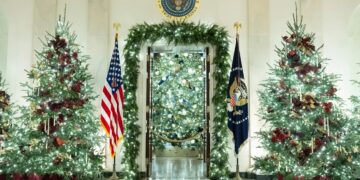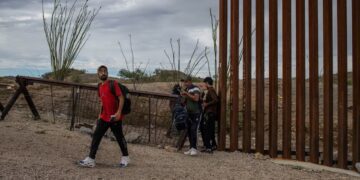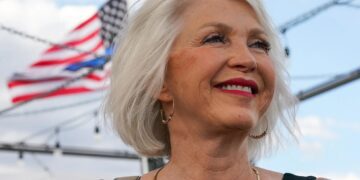On February 22, we celebrate George Washington’s Birthday.
Other holidays celebrate whole classes of people – Independence Day commemorates the Founding Generation… Veterans’ Day celebrates all who have served in our armed forces; Memorial Day thanks those who made the ultimate sacrifice in that service.
But Washington’s Birthday is different, because on this day, we’re focused on one man. As well we should be.
We’ve had 45 presidents now, and tons of military leaders, in our nation’s quarter of a millennium of history. Why is President Washington singled out? Could it really be just because he was first?
When he died, one of his many eulogists – fellow Revolutionary War General Henry “Light Horse Harry” Lee – summed it all up in a great line: “First in War, First in Peace, First in the Hearts of his Countrymen.”
This should give us a hint that his status as “first” wasn’t about chronology. There was something special about George Washington and his unique contribution to our country.
A Virginia Boy
He was born on February 11, 1731, old style… but as Great Britain belatedly switched over to the Gregorian calendar, his date became February 22, 1732, and it’s that date that was celebrated up and down the coast, not only after his death, but during his lifetime. He was such a national hero even before the revolution, that people held celebrations on Washington’s Birthday during the war.
That should give us a hint that he was something of a big deal, not just after his presidency, not just after winning the war, but before all that.
He was born an unimportant boy from a reasonably prominent family. We say this not to be unkind, but because the British had a certain way of ranking their sons. The eldest would inherit the most land, and carry on the father’s business; other sons would hopefully find success in the military or business world somehow.
Since George was the eldest son of his father’s second marriage, there had been four siblings ahead of him (though only two lived to adulthood), and five more after; young George would probably need an officer’s commission in the British Army or Navy to get anywhere in life.
George never got that commission, however, so he had to make it on his own somehow, and Virginia was the right country for him to do it in. Every colony was its own separate country in those days… all members of the British Empire, yes, but otherwise unrelated to each other. Roads were few, poor, and dangerous, which kept travel between colonies at a minimum outside of commercial traffic, which usually took place by ship, up and down the coastline.
Being a Virginia boy, living far from any city or town of note, he was primarily homeschooled, other than just a couple of years at a small Fredericksburg school. Other sons of wealthy planters might be sent to England for college; he had no such luck. He couldn’t even go to college here. So, he chose a trade, and wisely picked surveying, quickly becoming one of Virginia’s most dependable surveyors before he was out of his teens.
Surveying is a tough business anywhere, but especially in rocky, hilly, forested terrain like Virginia, and all the more so when that terrain touches on the lands of hostile enemies such as the American Indian tribes that lived across the mountains. George Washington got to know the land, and he became a master horseman, comfortable living in the wild while at work, sleeping under the stars in a way that the powdered wig crowd back in England could never have mastered.
When the Royal Governor needed to send militia across the mountains, whether to deal with the Indians or to determine the movements of the French, young Washington was chosen, and he swiftly rose to command, leading the Virginia militia by the age of 21.
After a few years of such service, primarily in the early years of the French and Indian War, he retired from the military to concentrate on his new family (he married a young widow who already had two children), his business (he inherited land as others in his family died young), and his political calling.
In this new phase of his life, he first aimed to fit in with the other planters of Virginia… raising tobacco, engaging in land speculation, and taking the wife to dances in Williamsburg.
But his path soon diverged from the typical Virginia gentleman farmers who surrounded him.
He found that promises of western lands made by past governors to the men who served with him in the militia weren’t being honored; Washington needed to champion that cause. He never forgot that the English government had reneged on their promise of western land for the courageous Virginians who’d fought for them.
He noted that commerce among neighboring states and across the mountains would require projects like ports and canals, so he led business consortiums to build such things, with mixed success, as he gradually realized that King George III intended to keep the colonists down, restricting their westward plans.
He gradually came to understand that the plantation system was killing itself; that the labor-intensive tobacco crop and slavery model practiced by his neighbors were terribly destructive to both man and land, so he gradually worked to change his own business model. By the time of the Revolution, he had managed to diversify his crops, almost completely eliminating the nutrient-depleting tobacco, and switching to a broad mixture of grains, fruits and vegetables. He gradually stopped buying slaves, and also stopped selling slaves because he couldn’t bear to break up families, and tried desperately to find a way to free them.
He grew to detest how dependent he and his fellow farmers had become on their London agents, so he started manufacturing whatever he could at Mount Vernon, from beverages to clothing. He wanted to reopen his father’s ironworks, but that fell under the banned types of manufacturing – yes, as the King restricted how far we could go away from home, the King also restricted what business we could do on our own property.
By the late 1760s, when the colonies of New England started a coastwide boycott of English goods, George Washington was in a position to take up the same cause in the south. Washington led the Virginia House of Burgesses, in what can only be called open rebellion, to declare their colony in unity with the northern boycott, even after the Royal Governor formally dissolved their legislature! This leadership, at the Raleigh Tavern seven years before our Declaration of Independence, was daring indeed.
A Time for Revolution
When the Continental Congress was called in the early-to-mid 1770s, George Washington was therefore more than just another delegate from a southern colony. He had become famous 20 years earlier as a military leader; he had worked with other colonial leaders in business ventures and political struggles. After Benjamin Franklin (who after all had spend decades as the face of America in Europe), George Washington was the most famous American in the world.
He was therefore, in 1775, the logical choice to command the new Continental Army, and he did so with brilliance and courage, leading our untrained, ill-equipped forces for eight years, eventually defeating what was then the greatest military on earth.
George Washington wasn’t a typical military leader, either. As our Commander-in-Chief for those eight long years, he used a blend of European fighting and things he’d picked up from Indians over here. He resisted the temptation to commandeer provisions from the locals (as European armies in his position would have done), and instead made sure to push Congress and the states to buy provisions the right way, retaining and growing the popular support of civilians throughout the war. He ensured that our troops were healthy, by mandating inoculations against smallpox as a condition of service.
He resisted political pressure to fight battles that he’d be likely to lose, and instead engineered a modified Fabian strategy of only fighting when he could be reasonably sure of victories, of keeping his army together for the long haul despite all odds, and of wearing down the English so that they would eventually have to give up. He understood, in a way that most of his contemporaries did not, that we didn’t exactly have to win; we just had to not lose, for long enough, and the war would become so unpopular at home that the English would eventually give in.
He managed this through years of privation. He endured numerous cabals by incompetents who thought they knew better and even traitors whose hearts had gone to the other side. He engineered a brilliant spy network, and proved his managerial skills with a close-knit team of young officers known ever after as “Washington’s Family.”
And then, when the war ended, he travelled to the temporary capital at Annapolis, handed over his commission to Congress, and resigned, returning to his farm a private citizen, a modern Cincinnatus.
A Man at Peace
After the war, he returned to manage his holdings at Mount Vernon again, rebuilding the business he hadn’t seen for eight years, his beloved family at his side. He kept up on current events, corresponded with his old fellow officers and his many colleagues in the state governments. In his fifties now, he was an elder statesman, holding no political office, but working on pet projects from before the war, like canal and land development, and other commercial outreach.
When, in 1787, the Constitutional Convention was convened to fix (or replace) the woefully inadequate Articles of Confederation, only one man could give such a project the respect it needed, and his friends talked him into attending as a delegate, then into accepting the post of presiding officer. As President of the Convention that summer, he helped deliver one of the most amazing political accomplishments in history, a Constitution that redefined government itself, devising such concepts as the checks and balances of different branches and different factions, and the shared sovereignty of the individual, the state, and the nation.
It was such a success, his country selected him by acclamation as its first President under the new system (we had had fourteen presidents under the Articles, so he could be counted as first or fifteenth president, depending on how you look at it).
In his eight years as President, he set still more patterns in place… seeking geographical and partisan balance in presidential appointments, building a truly team-style cabinet structure, and setting Constitutionality as his determining factor for signing legislation, rather than simply signing the bills he liked and vetoing those he did not, as Presidents do today.
In those eight years, this wartime leader managed to keep the peace, determined to resist the factions that encouraged our involvement on one side or the other of the European wars that the French Revolution kept spawning. He sent his diplomats out to the leaders of the Indian tribes, to pursue peaceful assimilation or friendly separation, rather than the bigotry and hostility that human nature proposed in their place. He appointed many of the nation’s greatest to high office, building an administration with such leading lights as Henry Knox, Alexander Hamilton, Edmond Randolph and John Jay.
When he stepped down at last after two terms, setting a precedent that was to stand for a century and a half, again the world was amazed; people in power just didn’t relinquish power willingly… but George Washington did.
He wasn’t a writer like Hamilton, Tom Paine, and Tom Jefferson. He wasn’t an orator like Patrick Henry or Gouverneur Morris. Modern Americans therefore might not fully appreciate his commitment to the philosophy of independence. George Washington didn’t leave many pithy dictums, carved in the collective consciousness of generations, as many of his contemporaries did.
But his commitment to America – not just the country and its people, but the philosophy of the Founding era, the Liberty philosophy honed by the thinkers of the Enlightenment – can be seen in his total life experience.
He wasn’t just a businessman, a legislator, a warrior, or an executive. He was all these things and more.
He was a horticulturalist, a horseman, an innovator, and a believer in something new under the sun: this idea that these United States could be the culmination of Western Civilization, a new nation that would fulfill the hopes of centuries of philosophers, with a large-scale republic dedicated to individual freedom.
And this is why we celebrate His Excellency’s birthday, this year and every year. This is why streets, cities, even a state and our national capital, are named after him: Because he was a visionary who saw our colonies not as a dependent of a foreign realm, but as a potential “City on a Hill” all its own, and because – thanks to Divine Providence – he possessed the skills and commitment to make it happen.
We are fortunate indeed to have had him when we did, and that we still have his memory as a role model for the ages.
Happy Birthday in Heaven, President Washington!
Copyright 2019 John F. Di Leo
John F. Di Leo is a Chicagoland-based Customs broker and trade compliance trainer, writer and actor. His columns are regularly found here in Illinois Review.
For further reading on George Washington, there are many books to turn to; almost too many. Strong recommendations here for the biographies by Richard Brookhiser, James Thomas Flexner, Willard Sterne Randall, and Paul Johnson… for a start!
(shown above: John Trumbull's 1790 live portrait of the President)
Don’t miss an article! With so much of social media shadowbanning sites like this, please use the free email notification tool in the margin so that you can find out whenever there’s new content on Illinois Review!







